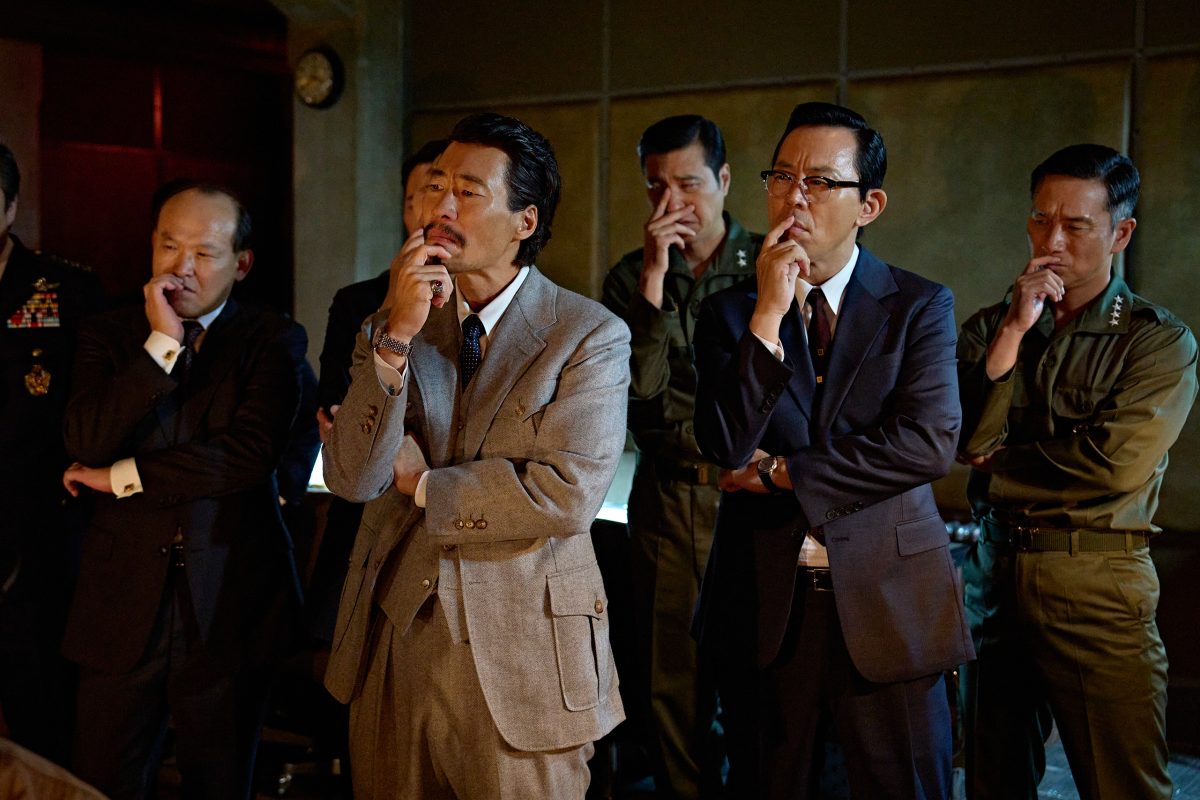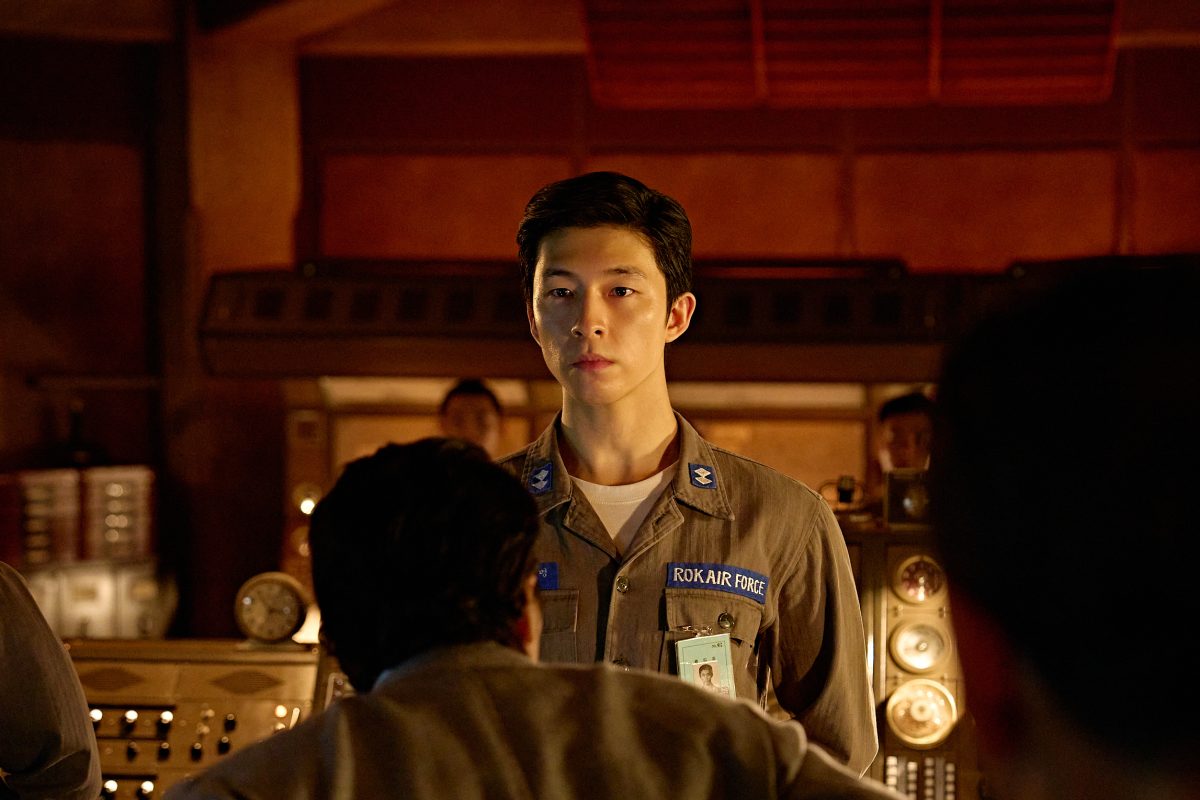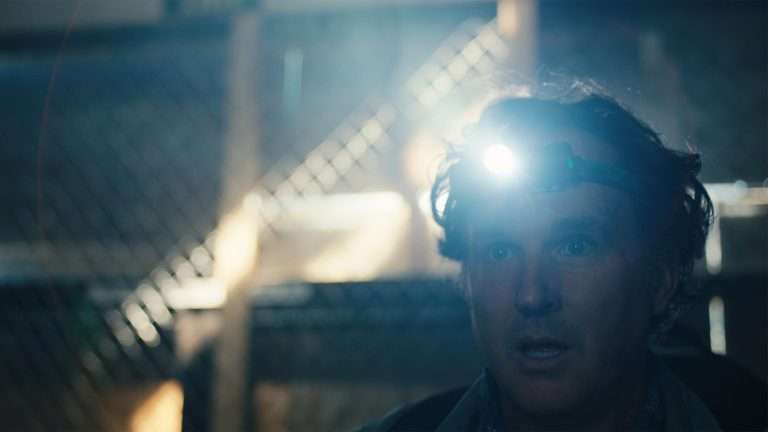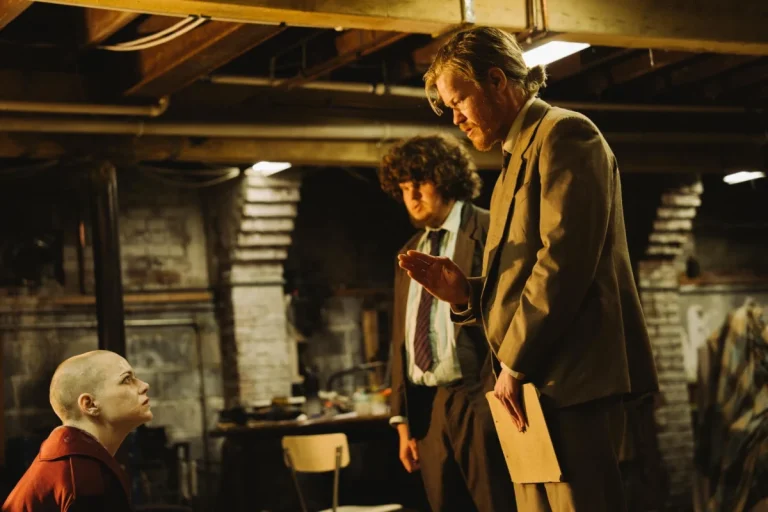Many of the funniest films ever made succeeded by making light of subgenres that are otherwise used to make serious points about society, culture, and history. Even if a classic “disaster film” appeals to a broad audience with its larger-than-life thrills, it still has something to say about the type of primal horror that can strike fear into the hearts of a collective.
Similarly, a taut political thriller can examine the lurking anxieties felt by a society that doesn’t feel comfortable with its identity. “Good News” (Original title: “Gut Nuiuseu,” 2025) merges the suspense of a rousing conspiracy thriller with the scale of an action epic, and finds an absurdist sense of comic relief within the various procedures employed within a crisis situation.
“Good News” is curiously set in 1970, where it is bound to evoke comparisons to classic crime thrillers like “The Taking of Pelham One Two Three” or “Dog Day Afternoon,” which examined the ways in which creative criminals exploited the faults within infrastructure. However, the aerial setting and large ensemble also evoke the tradition of disaster classics like “Airport” or “The Towering Inferno,” in which everyday people were placed in extraordinary situations.
These two styles aren’t just compelling because they don’t seem traditionally compatible, but because they’ve been out of style. However, “Good News” isn’t a nostalgic throwback because it reframes its narrative within the context of Cold War tensions in Asia during a period of change.
“Good News” begins with the hijacking of a commercial airline by members of the militant Red Army Faction of communist sympathizers, who demand to be flown to a landing zone in North Korea. Although the passengers are terrified of the relentless (if somewhat incompetent) band of criminals, the situation has created an even bigger headache for the various players called in to resolve the conflict.
South Korean authorities haven’t planned for a situation in which a flight would be landed within enemy territory, and have grown concerned about the larger implications of conforming to the terrorists’ plans. It’s a sticky scenario that grows even more dynamic once forces arrive from both Japan and the United States, leading to a series of tense disagreements regarding intent, authority, and collateral damage.

“Good News” is partially inspired by a true story, but there’s no implication that what’s on screen is intended to reflect reality. Instead of using archive footage, news clips, or end credit text to remark upon what may or may not have actually happened, “Good News” creates an aura of authenticity through its dedication to process.
Even if the tone is somewhat farcical at times, there aren’t any shortcuts taken in examining the role that each group played within such a tempestuous showdown. The humor comes from the fact that representatives from multiple nations intend to play by their own rules, yet find themselves confused when other governments aren’t willing to play ball.
Discerning viewers interested in the broader implications of a dark thriller based around military incompetence may find some traces of contemporary commentary within “Good News.” But for the most part, it is a comedy of errors. Each potential solution inevitably has some sort of drawback, and that’s even before the larger-than-life personalities begin feuding with one another. Although there’s a strong ensemble, Ryoo Seung-bum gives a standout performance as the confident, yet easily aggravated South Korean intelligence director who can’t help but make snide comments about the Japanese agents with whom he’s forced to make amends.
Also Read: 20 Hilarious Comedies on HBO Max
Although “Good News” succeeds in making the assailants feel legitimately frightening, as this is not an edgeless spoof in the vein of “The Naked Gun,” it does go to great lengths to show the general narcissism and haughtiness of everyone involved, even those with supposedly good intentions.
Newcomer Hong Kyung perfectly embodies this dynamic with his role as a thoughtful, yet inexperienced Air Force lieutenant who overestimates the possibility of performing heroics that would require more careful planning and patience than his country’s military is ordered to create within a short window of time. Some performances go for more broad satire, such as Sul Kyung-gu as a tactical genius referred to as “Nobody,” whose plan to execute a high-tension rescue doesn’t go exactly as intended.

At 136 minutes, “Good News” oddly ends up feeling slightly underdeveloped in some instances. While there are some light jabs between the Korean and Japanese representatives, the film doesn’t have the time to delve deeply into the lingering tensions between the two countries in the aftermath of World War II. Similarly, the motivations of the terrorists are only briefly mentioned. Depicting the communist militants as ideologically confused buffoons may have been an intentional bit of pointed political satire, but it does become somewhat unsatisfying when the film is otherwise adept at utilizing its terrific ensemble.
“Good News” is so fluid within its transitioning of genres that it’s easy to overlook the Herculean task filmmaker Byun Sung-hyun pulled off. Scenes are never cluttered with too many asides to be incoherent, even if the intention is to spotlight bureaucratic chaos. Dialogue exchanges are sharp and often witty, but the subtext is never so apparent that it feels as if too fine a point has been made. Cultural references to both East Asian history and cinema may be appreciated by those with the background knowledge, but they aren’t a barrier to enjoying a very digestible thriller.
“Good News” doesn’t only come at a time in which Korean cinema is experiencing a renaissance, but in an era in which the state of Netflix’s interest in the theatrical medium is ambiguous. Even though this year has seen the streaming service back auteur-driven passion projects like “Frankenstein,” “Jay Kelly,” “A House of Dynamite,” and “Nouvelle Vague,” the majority of Netflix releases were never intended to be shown on the big screen, which is apparent in the artificial, digestible quality of their aesthetic.
“Good News” isn’t just a rebuke to Netflix’s declining standards, but in many ways the ultimate streaming release. Perhaps such an eccentric, risky project would have struggled to earn a theatrical audience, but it’s so wilfully unique that it just might catch the attention of curious streamers.







![Missing Johnny [2018]: ‘NYAFF’ Review](https://79468c92.delivery.rocketcdn.me/wp-content/uploads/2018/06/MISSING_JOHNNY_NYAFF_HOF_3-768x512.jpg)
![Violation [2020]: ‘TIFF’ Review – A Chilling, Powerful drama about female rage](https://79468c92.delivery.rocketcdn.me/wp-content/uploads/2020/09/Violation-Movie-Review-highonfilms-1-768x384.jpg)